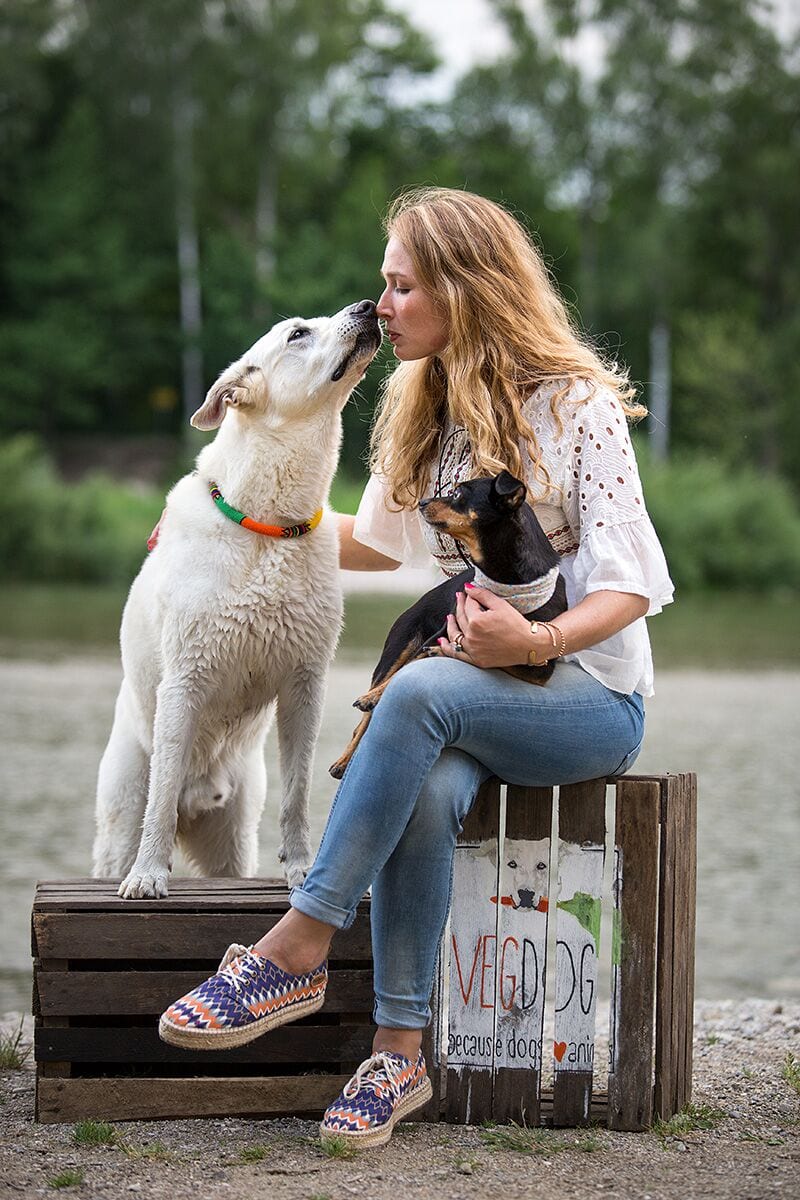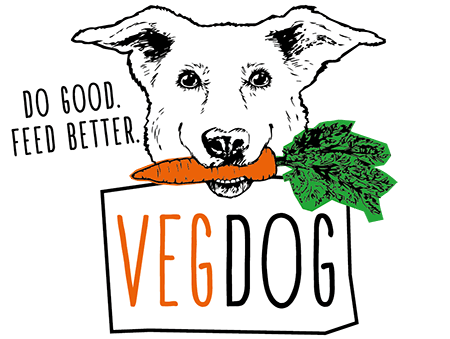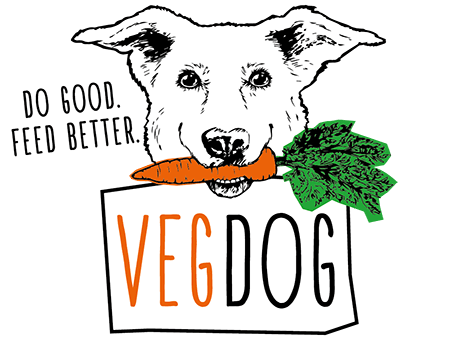philosophy

Feeding the dog – a descendant of the wolf – a meat-free diet?
Even on a genetic level, dogs are no longer wolves. In 2013, a study by Swedish researcher Erik Axelsson proved that dogs had adapted to human diets during domestication. For a very long time, these consisted primarily of plant-based components. Meat was a luxury item. In the course of history, dogs have never been given as much meat as they do today. This adaptation can be seen by comparing the genetic makeup of dogs and wolves. This genetic change is responsible for the dog's ability to metabolize starch.
How can meat be replaced with plant-based substances?
According to animal nutrition experts, dogs are therefore able to obtain the nutrients contained in meat from other corresponding raw materials. You just have to make them available to them in a suitable form (find out more about our ingredients ). Lupine, lentils, peas and soy are currently the highest quality proteins among plant-based feeds. They ensure a basic supply of essential amino acids in vegan dog food. Essential fatty acids such as omega-3 and -6 fatty acids can be provided by various oils, among other things. A vegan complete food, i.e. food that completely covers needs, should contain the addition of carnitine, taurine, vitamin B12, copper, zinc and raw materials that contain EPA and DHA (other omega-3 fatty acids). However, according to animal nutrition experts, additives are necessary in every complete food. It makes no difference whether the food contains meat or plant-based food. But why should you feed your dog a vegan diet at all? In addition to the previously discussed case of food intolerance, a vegan diet is also recommended for other illnesses. One example would be leishmaniasis, which requires treatment. In this case, dogs benefit from a diet that is particularly low in purines.
For healthy dogs, vegan dog food can be a good way to not only do something good for your own dog, but also for other animals. You don't necessarily have to feed your dog a vegan diet seven days a week. Even one, two, or three days a week not only helps to feed your dog a healthier diet, but also reduces the amount of meat consumed and thus protects the environment. So why not?
You can find out more about the feasibility in our Nutrition ABC .







